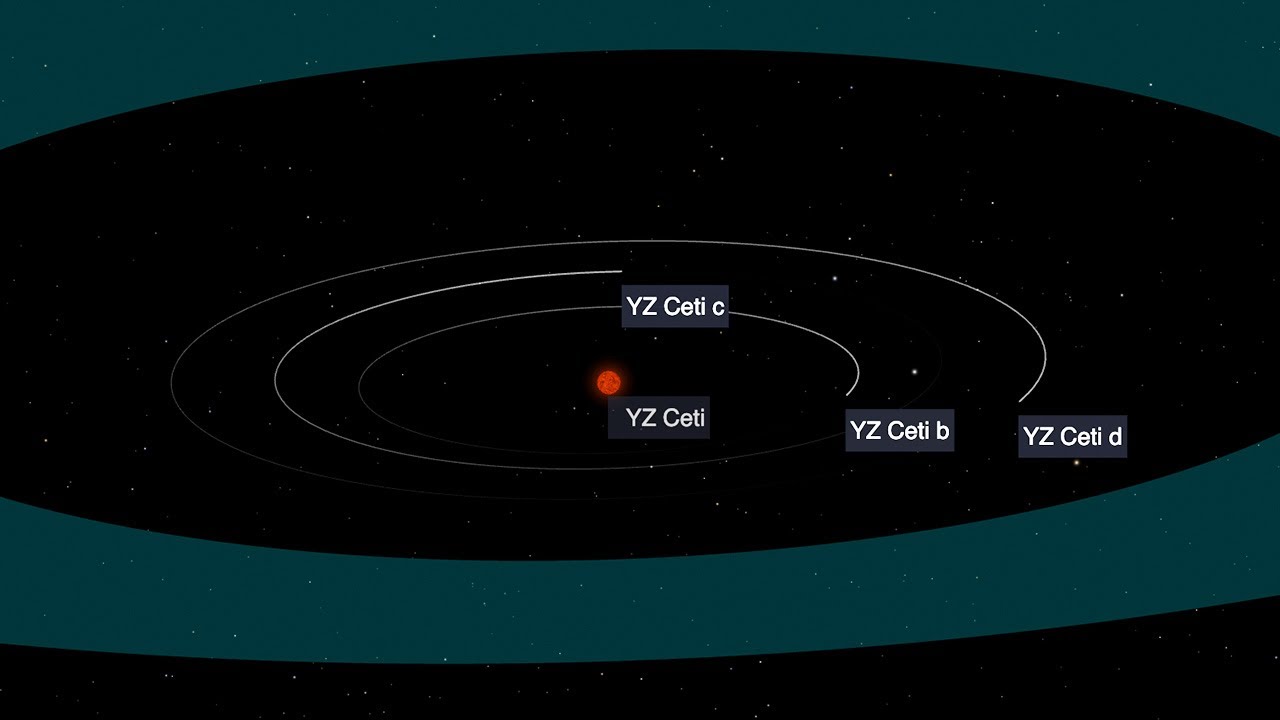
Scientists discover an exoplanet that emits repetitive radio signals: What does it mean?
Scientists have detected a repeating radio signals from a neighboring star system that indicates the presence of a magnetic field around one of the Earth-sized planets in this system, according to a new study published in the journal Nature Astronomy.
The Earth's magnetic field plays an important role in the survival of almost all forms of life. It protects the planet's surface from the sun's harmful radiation and helps maintain a stable atmosphere that nourishes our biosphere. For this reason, scientists believe that extraterrestrial life, if it exists, may also depend on the presence of strong magnetic fields around exoplanets – worlds orbiting other stars.
Study authors Sebastian Pineda, a researcher at the University of Colorado, and Jacqueline Villadsen, an associate professor at Bucknell University, have spent years looking for signs of a magnetic field in minor planets. Now, this pair of astronomers has provided unprecedented evidence of repeating radio signals that could be linked to the magnetic field of the Earth-sized exoplanet YZ Ceti b, just 12 light-years from our solar system.
It takes YZ Ceti b only two days to complete its orbit, which means it is too close to its star for life to form on this planet. But thanks to this extremely short year, the authors of the study note, this planet also "becomes a uniquely promising example for studying the magnetic interactions between stars and planets."

Pineda and Villadsen focused their research on small planets with short orbits because their magnetic signature can be discernible due to their proximity to stars. As these planets move through their orbits, any magnetic fields they may interact with the star's magnetic field, creating a pattern of radio bursts from the star that can be observed on Earth.
The researchers believe they may have detected just such bursts coming from the YZ Ceti system, but they caution that this has not yet been confirmed. It is possible that the signals are a result of the normal radioactivity of the star YZ Ceti. This star is a slow-rotating red dwarf, and its radiation may have nothing to do with the system's planets.
"A lot is still unknown in this system, but I'd say we're showing the potential for radio data and magnetic interactions between stars and planets to lead to measurements of the magnetic field strength of Earth-sized exoplanets," Pineda said.
- Related News
- Wheel of Death: new method will help astronauts stay fit in low gravity
- Due to anomalies of Orion spacecraft, lunar exploration program may be delayed for years։ NASA
- TAO Observatory: World's highest telescope to study evolution of galaxies and exoplanets
- Powerful M9.5 solar flare causes radio blackout in Pacific Ocean
- What will happen to the Earth if the Moon disappears?
- Key to conquering the Red Planet: Why is NASA studying solar storms on Mars?
- Most read
month
week
day
- Digital Julfa Network is launching a pan-Armenian centre in the metaverse, on the Fastexverse virtual platform 990
- Xiaomi unveils exclusive Redmi Note 13 Pro+ dedicated to Messi and Argentina national team 871
- Sparkles: Boston Dynamics unveils a furry robot dog that can dance (video) 832
- Is there a ninth planet in the solar system? Scientists find new evidence 701
- What will happen to the Earth if the Moon disappears? 690
- Smartphone catches fire in child's hand in Russia 675
- Internet 500 times faster than 5G tested in Japan: It allows to transfer five movies in HD resolution in one second 669
- iPhone 16 may get colored matte glass back panel, 7 colors 669
- How to understand how protected a smartphone is from water and dust? 668
- World's largest 3D printer was created in USL It prints 29 meter-long structures 655
- Archive
